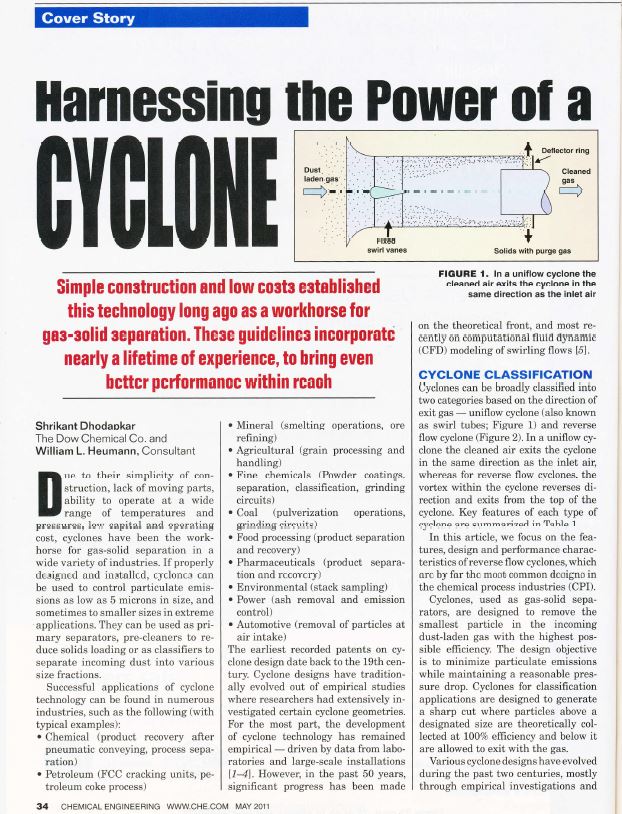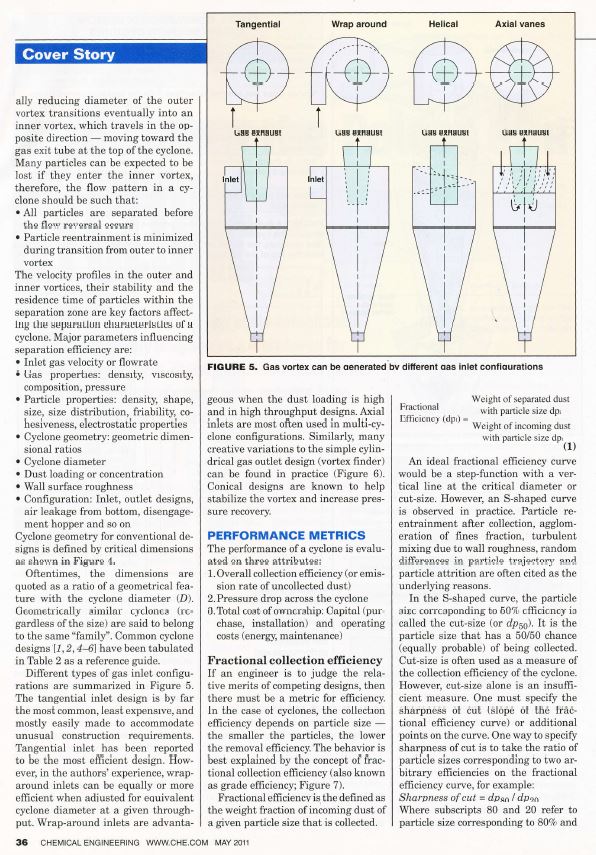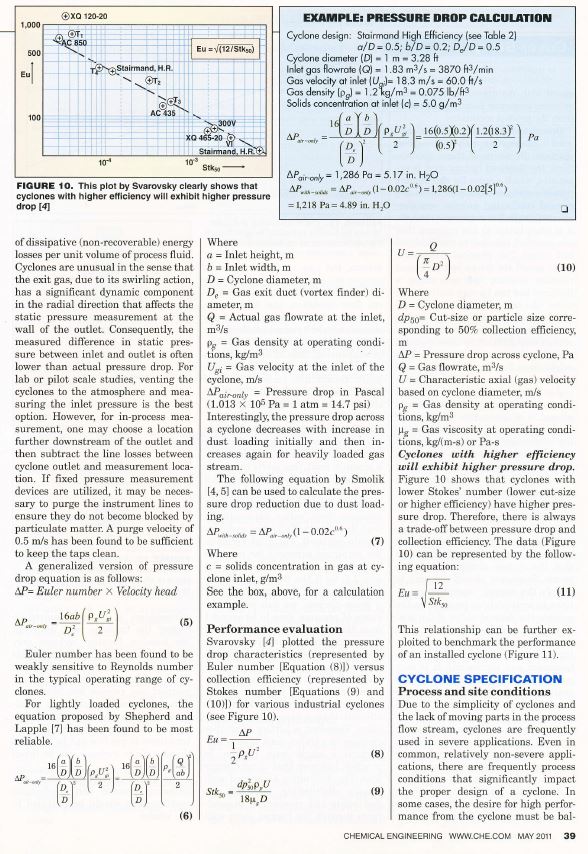Harnessing the Power of a Cyclone
Due to their simplicity of construction, lack of moving parts, ability to operate at a wide range of temperatures and pressures, low capital and operating cost, cyclones have been the workhorse for gas-solid separation in a wide variety of industries. If properly designed and installed, cyclones can be used to control particulate emissions as low as 5 microns in size, and sometimes to smaller sizes in extreme applications. They can be used as primary separators, pre-cleaners to reduce solids loading or as classifiers to separate incoming dust into various size fractions.
Successful applications of cyclone technology can be found in numerous industries, such as the following (with typical examples):
• Chemical (product recovery after pneumatic conveying, process separation)
• Petroleum (FCC cracking units, petroleum coke process)
• Mineral (smelting operations, ore refining) • Agricultural (grain processing and handling)
• Fine chemicals (Powder coatings, separation, classification, grinding circuits)
• Coal (pulverization operations, grinding circuits)
• Food processing (product separation and recovery)
• Pharmaceuticals (product separation and recovery)
• Environmental (stack…

Due to their simplicity of construction, lack of moving parts, ability to operate at a wide range of temperatures and pressures, low capital and operating cost, cyclones have been the workhorse for gas-solid separation in a wide variety of industries. If properly designed and installed, cyclones can be used to control particulate emissions as low as 5 microns in size, and sometimes to smaller sizes in extreme applications. They can be used as primary separators, pre-cleaners to reduce solids loading or as classifiers to separate incoming dust into various size fractions.
Successful applications of cyclone technology can be found in numerous industries, such as the following (with typical examples):
• Chemical (product recovery after pneumatic conveying, process separation)
• Petroleum (FCC cracking units, petroleum coke process)
• Mineral (smelting operations, ore refining) • Agricultural (grain processing and handling)
• Fine chemicals (Powder coatings, separation, classification, grinding circuits)
• Coal (pulverization operations, grinding circuits)
• Food processing (product separation and recovery)
• Pharmaceuticals (product separation and recovery)
• Environmental (stack…
[Originally published in the May 1995 issue of Chemical Engineering] Cyclone dust collectors have been used – and misused – all over the world for more than 100 years. One reason for the misuse is a common perception among users that all cyclones are “created equal” – that is, as long as a cyclone resembles a cylinder with an attached cone, it will do its job. However, to maximize separation efficiency in a specific application requires a precise cyclone design, engineered to exactly fit many possible variables. A well-designed cyclone, for instance, can achieve efficiencies as high as 99.9+% when operated properly within the envelope of its specifications. Nonetheless, cyclones are often used only as first-stage filters for performing crude separations, with final collections being carried out by more-costly baghouses and scrubbers. Compared with baghouses and scrubbers, cyclones have two important considerations in their favor. One, they are almost invariably safer – in terms of the potential for generating fires and explosions – than fabric filters. In fact, cyclones are the most suitable dust collectors when dealing with process temperatures and pressures higher than 2,000…










Comentários
Enviar um comentário